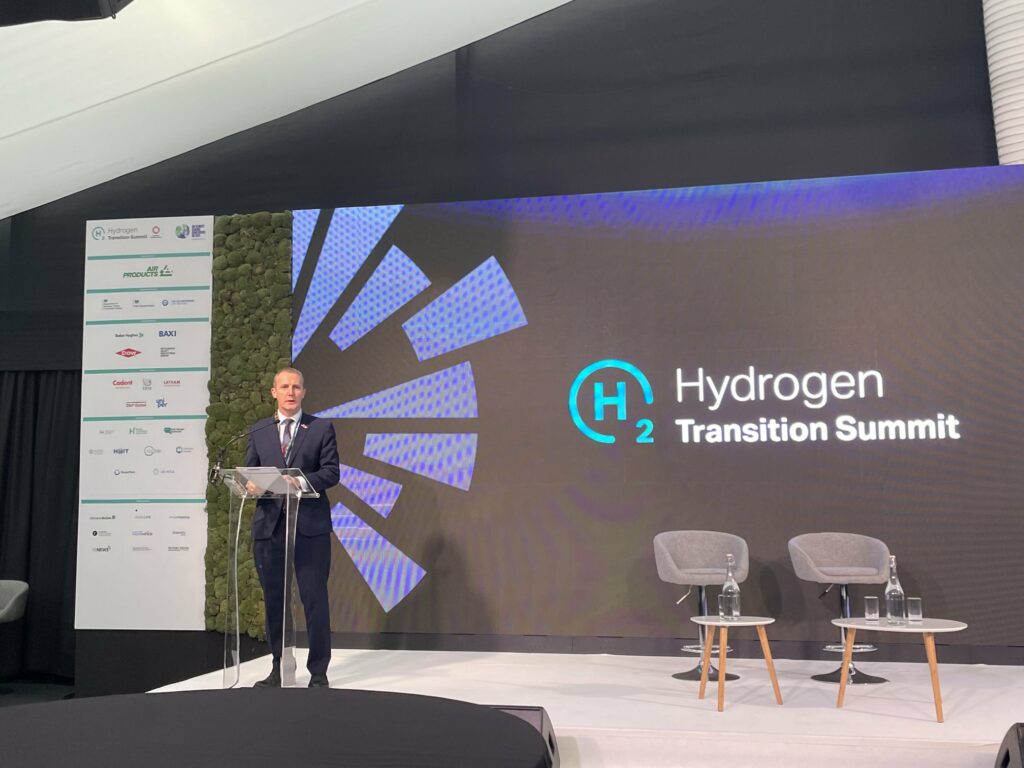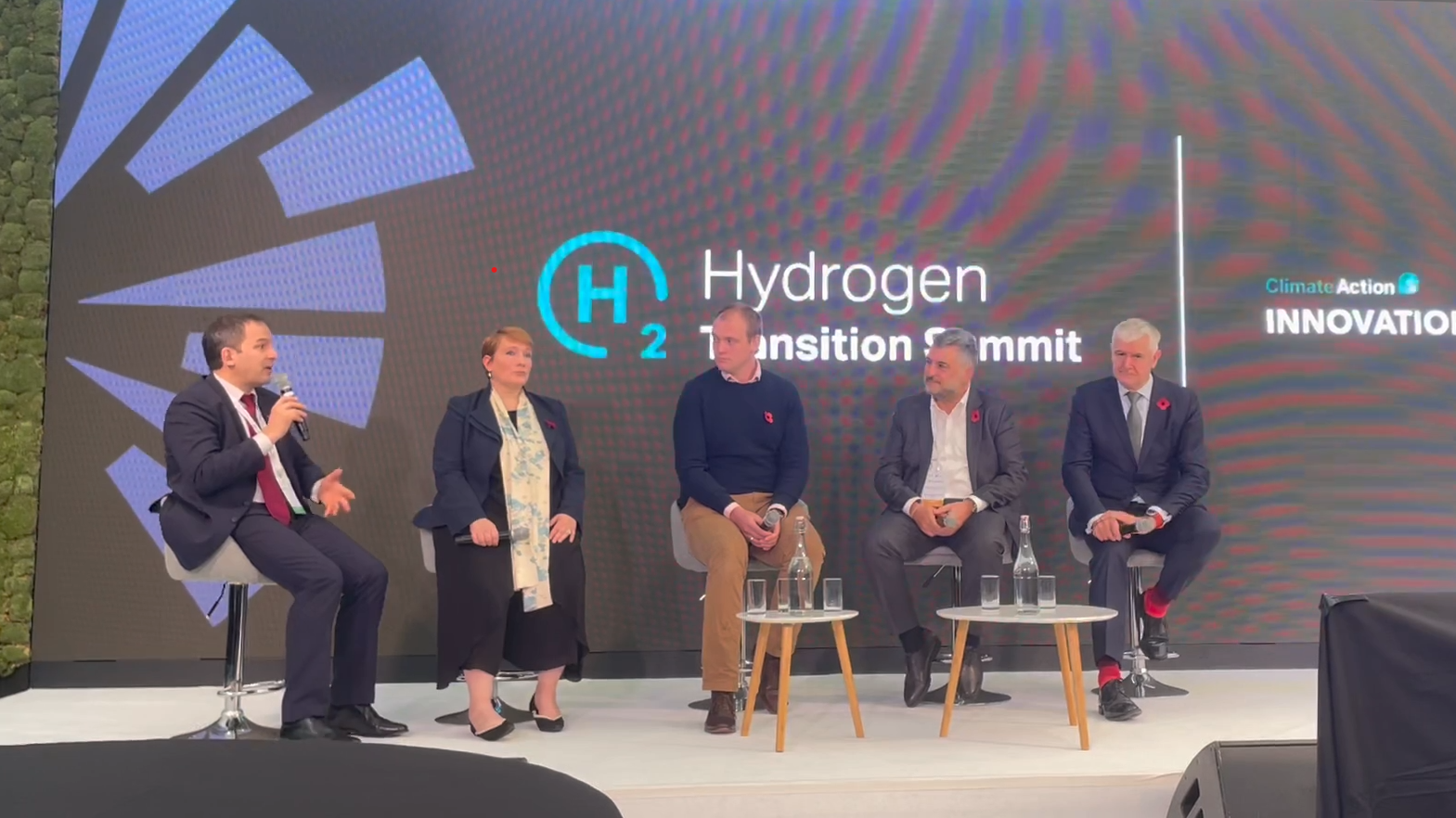During COP26 in Glasgow, The Bridge Tank centred its contribution to the conference on the theme of green hydrogen and its potential as a decarbonised energy carrier. An active participant in COPs since COP22 and the Innovation Forum it helped organise, and the only think tank invited to the launch of the Hydrogen Council in Davos in 2017, The Bridge Tank had defined hydrogen as one of the key issues for COP26/COP15 in the run-up to the summit through a special report.
Represented by its chairman Joel Ruet and our board member Raphael Schoentgen, Founder & CEO of Hydrogen Advisors, The Bridge Tank gathered insights and shared its expertise on hydrogen through two sessions on the subject. On 11 November, The Bridge Tank took part in the Hydrogen Transition Summit, which brought together hydrogen experts from around the world to discuss the role this molecule will play in the transition to a net-zero future. Raphael Schoentgen, board member of The Bridge Tank, was one of the speakers at the summit.
Michael Matheson, Cabinet Secretary for Net Zero, Energy and Transport of Scotland inaugurated the Hydrogen Transition Summit by underpinning the role of bilateral city-region partnerships to accelerate the setting up of hydrogen supply chains.
In several regions of the world, the economic and technological conditions to scale up hydrogen are already in place, Raphael Schoentgen argued, adding that public support for hydrogen is now strong. While the carbon price matters, knowing who the financial off takers will be and having finance in equity are two key drives to scale up, he added.


Green Hydrogen Application
One day earlier, on 10 November 2021, UNIDO and the Austrian Ministry of Climate Action organised a side event on “Green Hydrogen Application: Driving growth of renewable energy and advancing inclusive energy transition” at the SDG 7 Pavilion. The event gathered:
- Stephan Sicars, Managing Director of the Directorate of Environment and Energy, UNIDO,
- Leonore Gewessler, Minister of Climate Action, Environment, Energy, Mobility, Innovation and Technology of Austria,
- Rolando Castro-Córdoba, Vice Minister of Energy and Environmental Quality of Costa Rica,
- Rebecca Maserumule, Chief Director: Hydrogen and Energy at the Department of Science and Innovation, South Africa,
- Ahmed Benlarabi from IRESEN (Institut de Recherche en Énergie Solaire et Énergies Nouvelles),
- Alicia Eastman from InterContinental Energy.
Minister Gewessler set a framework on increasing complementarities between electricity storage, long distance mobility, carbon pricing, and directing hydrogen in priority towards hard to abate sectors like steel. This particular use of green hydrogen has considerable potential in South Africa, Dr Maserumule noted, as it could help decarbonise the mining & chemical sectors but also public transportation in the context of the country’s revised Nationally Determined Contributions (NDC).
In Oman, the sun and wind in the desert could give rise to the production of green hydrogen and green ammonia, as well as producing water and fixing atmospheric carbon through the production of synthetic fuels.



